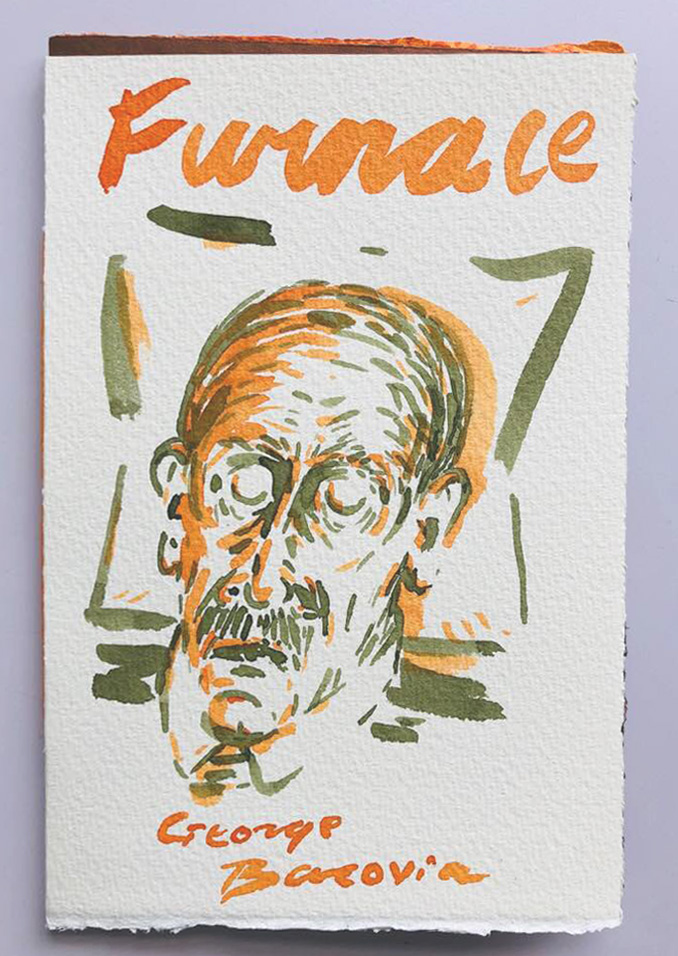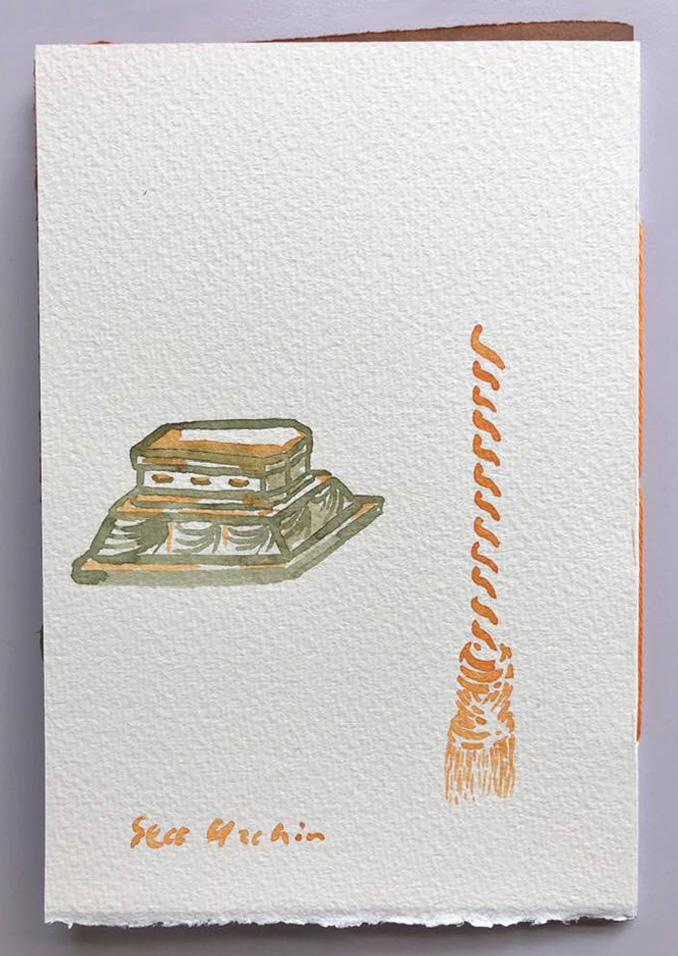
Author: George Bacovia
Publisher: Sea Urchin
Year: 2019
Size: 210 x 150 x 4 mm
Language: English
4 pages laser printed on 200 gr paper, flyleaves of Japanese Kakishibu and orange Nepalese papers
Binding: orange pamphlet stitch
Cover: watercolour on 300 gr Saunders Waterford
Artwork & translation: Ben Schot
Limited, numbered and hand made edition of 15
Gheorghe Vasiliu was a Romanian poet who named himself George Bacovia after his native town Bacău. Bacovia was born there in 1881 and distinguished himself as a talented draughtsman, violinist and poet while being educated at the Prince Ferdinand Gymnasium, now located at George Bacovia Street in Bacău. After having moved to Bucharest to study Law in 1903, Bacovia made the acquaintance of poet and critic Alexandru Macedonski, at the time the spearhead of Francophile Symbolism in Romania. Bacovia read his famous poem Plumb (=Lead) at Macedonski’s salon that same year and made a huge impression on his host and his literary acolytes. Bacovia’s star was rising in Bucharest, but suffering from bad health and depressions he had to return to Bacău and only finished his Law studies at the University of Iași in 1911, when he was already 30 years old. Instead of becoming a lawyer, Bacovia held various jobs at literary reviews, offices, schools and ministries, from which he more than once had to resign because of his failing health and depressions. Bacovia was committed to sanitoria several times during his lifetime. Although some poems had been written more than ten years earlier, his compilation Plumb was published in 1916, among them the poem ‘Cuptor’, now published in English by Sea Urchin as Furnace. In 1933 Bacovia and his wife permanently settled in Bucharest, where he died in 1957.
 Cuptor, subtitled Iulie (=July) was first published in 1906 in the literary journal Romanul literar and republished as part of Bacovia’s renowned compilation Plumb ten years later. The dark and morbid imagery of the poem make it an example of Romanian Francophile Symbolism, which was influenced by Baudelaire and his translations of Edgar Allan Poe. Having been taught German at an early age, Bacovia was not only familiar with Baudelaire and Edgar Allan Poe but also with Friedrich Nietzsche and other precursors of German Expressionism. Furnace is then as much a Symbolist as an early Expressionist poem. The poem, now handsomely published in the series of Sea Urchin chapbooks, is a cruel love song carrying whiffs of putrefaction under a sledgehammer sun. Furnace is an instant heat stroke.
Cuptor, subtitled Iulie (=July) was first published in 1906 in the literary journal Romanul literar and republished as part of Bacovia’s renowned compilation Plumb ten years later. The dark and morbid imagery of the poem make it an example of Romanian Francophile Symbolism, which was influenced by Baudelaire and his translations of Edgar Allan Poe. Having been taught German at an early age, Bacovia was not only familiar with Baudelaire and Edgar Allan Poe but also with Friedrich Nietzsche and other precursors of German Expressionism. Furnace is then as much a Symbolist as an early Expressionist poem. The poem, now handsomely published in the series of Sea Urchin chapbooks, is a cruel love song carrying whiffs of putrefaction under a sledgehammer sun. Furnace is an instant heat stroke.


